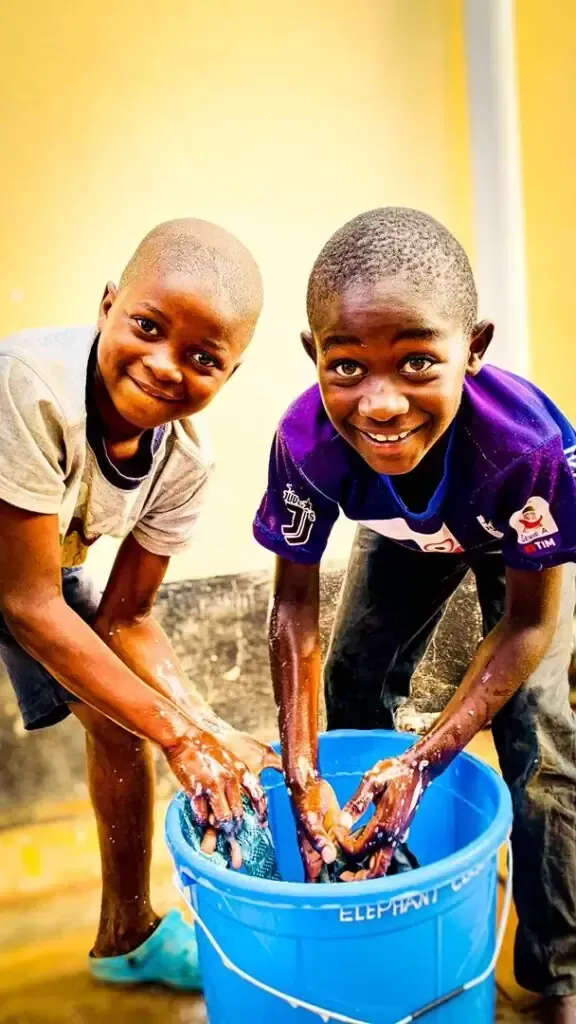Navigating through the pandemic
With over 40% of charity organisations closing and some diverting their programs to support Covid, charities like Sparkle have been left in an extremely vulnerable position. Whilst we try to balance and maintain our usual programs on a tight budget, there has been a growing need to respond to the pandemic in the best possible manner.

So how do we navigate through these times?
The past 15 months have certainly been unusual around the world and we all long for life to return to normal. Charities, businesses, and government alike are are all pledging their compliance to preventive measures with faith that one day these difficult times will merely be memories.
The COVID-19 pandemic has caused African nations economies to fall by 1.4% in GDP. Malawi, a land locked country heavily dependent on subsistence agriculture and exports of tobacco, tea and sugar, has not been spared by the pandemic. Even before the pandemic, Malawi was battling food insecurity, climate changes, economic downturn and political conflict. COVID-19 has worsened the situation and we have witnessed that first-hand for the communities we support at Sparkle.
Most families in Malawi, who live on hand-to-mouth basis, face this impossible choice with lockdown measures; “I can no longer go to work neither can I sit at home to interact with my family. I am always going around people’s houses to look for piece work so that I can provide for my family,” says Mr Mwadya. He used to work as a head cleaner at one of the local nursery schools but lost his job due to the pandemic. “The situation is unbearable for domestic workers because the threat of getting infected by the Corona virus is too high. A large number of the households are careful not to hire someone that commutes using public transport, and their movements after work cannot be tracked, and therefore work is not readily available,” he added.
This is a common picture around Malawi. “Schools got closed and there were no confirmed dates as to when they were going to be reopen,” cried Mercy. “To make matters worse I automatically became the breadwinner of my family because both of my parents could no longer provide as they both lost their jobs. I am only 13 years old, and I was in standard eight when I found out that I was pregnant. I know that the legal marriage age in Malawi is 18 but I had no other option because sex was the only thing I could to offer in return for money for food. I had nowhere to turn to.”
It was stories like this that led The Sparkle Foundation to act and implement a food distribution project targeting vulnerable families. We also intensified our youth programs to ensure our teenagers were being educated on sexual reproductive health and sporting activities to keep them busy while schools remained closed.
Our team witnessed first-hand the impact the pandemic has had on the access and provision of health services, when they came across a critically ill woman in the community. “I can no longer go to the Health Centre or any public hospital because that’s where people are getting the virus,” Angela said. This unfortunately was a view shared by many in the community.
“I have been discharged because the hospital is filled with COVID-19 patients and the hospital cannot take the risk of having a Malaria patient like me around COVID-19 patients. That is why I am here with my water and medication drip,” added another patient who was being treated as an outpatient, even though she should have been admitted.
As a Malawian, seeing all the challenges an already vulnerable population was facing was devastating, but I was so proud that the organisation I worked for was prepared to take action. Even though it was difficult financially for them and this wasn’t part of the agenda, Sparkle was not going to turn away now. This was seen by the opening of the medical clinic which originally was just budgeted for the children, but we opened their doors for all of the community so everyone had free access to healthcare in our 17 villages.
As an organisation we are determined to ensure that vulnerable children are protected from hunger by providing them with food (a well-balanced diet), and that girls and young women continue to have access to sexual and reproductive health information and services. Our Youth Club, Women’s group, the Sparkle clinic, and use of Sparkle vehicles such as ambulances, are how we are meeting our strategic goals. In addition to these efforts, we are working hard to protect girls and women from gender-based violence, because in times of crises girls and women are often hard-hit by social norms and discrimination.
As a woman, and a female leader, I am sure that Sparkle is at the start of our journey and although Covid has been extremely difficult for so many, as an organisation we have been able to rise to the challenge and this is just the start of what we are able to achieve.







